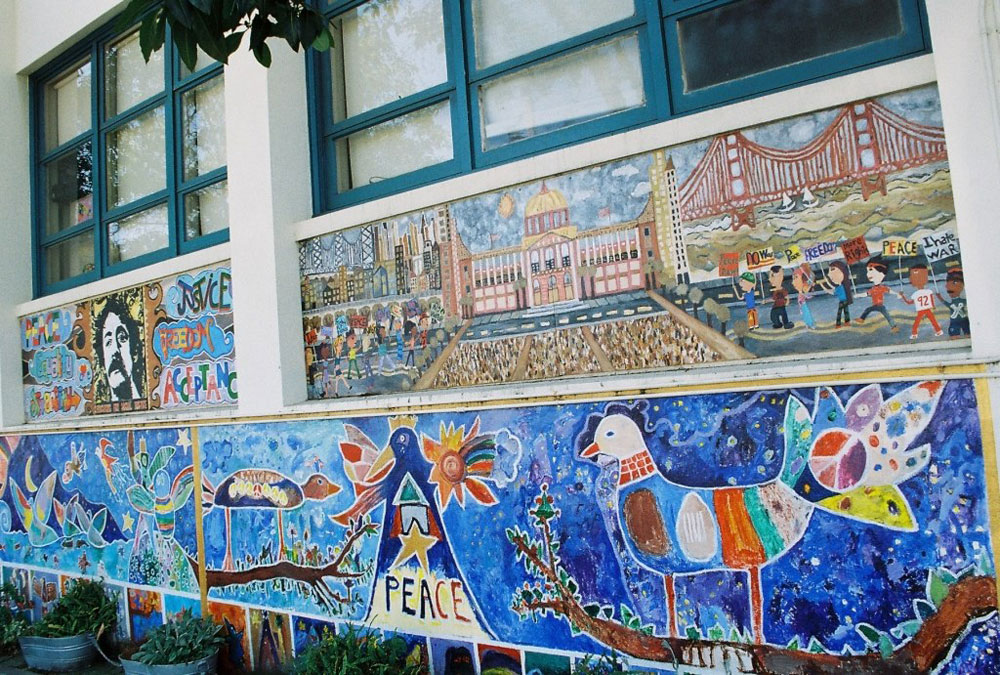
The year 2020 has proven to be a time of seismic change, as our planet convulses under climate extremes, the pandemic, and failing governments all around us. The pandemic, as many have noted, has unveiled systemic racial and economic inequities and the lack of human services infrastructure to answer basic needs of health, food, education, and housing justice. Alarmingly, we have witnessed too the steady rise of authoritarianism in the United States—as activists have warned against for decades— fueled by secret donors, increasingly powerful tech and media monopolies, extractive capitalism, and an overmilitarized society.
It has been a year of immense learning and of immeasurable heroism, not only from essential workers, migrant farmers, health professionals, teachers, and food bank providers, but from communities of color and their allies fighting against racism. We have seen families weather the storm in their own personal ways. We have seen so many take risks—from volunteers to journalists to lawyers in court, all acting to defend past hard-fought democratic gains from authoritarian erosion. The herculean efforts so many have made to get out the vote and cast ballots despite the pandemic and ongoing voting suppression tactics that have resulted in millions having to stand in line for hours have been no doubt heroic.
Yet deep inside, we know that voting is not the end; it’s just one imperfect tool at our disposal. Donald Trump is not the disease, but a symptom of an autophagous system made possible by centuries-old power structures that seek to divide and conquer. We know the threat of authoritarianism will not go away any time soon.
In saying these things, we acknowledge that the nonprofit sector has too often evaded facing the evident threats to the democratic civil society bases upon which our sector’s very existence depends. Still, at their best, nonprofits have joined in the many popular mobilizations that we have witnessed in recent years.
Sign up for our free newsletters
Subscribe to NPQ's newsletters to have our top stories delivered directly to your inbox.
By signing up, you agree to our privacy policy and terms of use, and to receive messages from NPQ and our partners.
As in many other nations across the world, people in the United States have consistently taken to the streets to fight against a colonial/capitalist inheritance of racist and patriarchal oppression. We have done so bravely: the #MeToo movement; the fight against islamophobia; the March for Science and the world climate justice movement; the youth leaders of March for Our Lives; #BlackLivesMatter, joined by indigenous, Latinx, Asian voices; the fight for human rights and refugees. We’ve joined our worldwide community in raising our voices against injustice, and as such, we must continue to look within as much as we do outside. In a strange way, the pandemic and social distancing have brought us closer in our pain and our will to fight.
By now, we know movements, not politicians, will lead the way. But we must continue raising a diverse set of voices to places of power. We must continue making politicians accountable, every step of the way. And we must recenter our legal system on human, rather than corporate, rights. Local solutions, multiplied worldwide, have brought us closer to answering the hardest questions of fairness, justice, and sustainability. We must also practice democracy in our everyday lives, within our organizations, by recognizing our privileges and embracing the anti-racist, anti-colonial work needed for a deep paradigm change.
There is so much to fix. Let us endeavor to not shy away from this work, but to build anew. May we all embrace this historic task with the vigor and enthusiasm that the path ahead requires.













